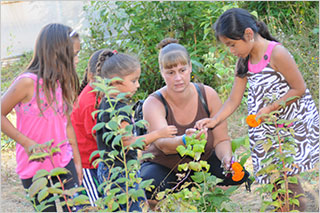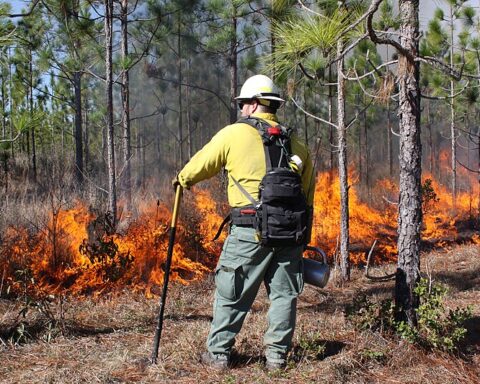The United States Department of Agriculture (USDA) is investing $62.3 million across three programs to help support Tribal sovereignty, incorporate Tribal knowledge into USDA programs and strengthen traditional food supplies.
The USDA will award $42.5 million through the Indigenous Animals Harvesting and Meat Processing Grant Program to eight Tribal Nations. The recipients will use the funds to leverage both modern and traditional harvesting methods for native fauna.
Some of the notable project receiving funding include:
The Confederated Tribes of the Colville Reservation in Washington will use $16.5 million to upgrade and expand its processing facility. Plans include modernizing the facility with processing, cold storage, freezing, drying, smoking, fileting, packaging and canning units. The facility will be able to process up to 200,000 pounds of meat, doubling the amount of available meat. The facility will include classroom space to teach traditional hunting and processing methods and a modernized distribution center with upgraded storage and safety equipment.
The Confederated Salish and Kootenai Tribes in Montana will receive $7.7 million to build a meat processing facility capable of processing up to 25 animals per week. The facility will process bison, deer and elk, mitigating food supply issues the community has previously faced.
The Eastern Band of Cherokee Indians in North Carolina will spend $6.5 million to build a processing center for locally raised and hunted species. The band will use the facility to create a tribally owned brand of fish and meat, including rainbow trout and bison. Food will be distributed to community members, schools, hospitals and other facilities.
The USDA’s Forest Service will provide an additional $18 million across 23 projects that support the Tribal Forest Protection Act. The protection act prioritizes projects that reduce the risk of hazardous fuels and restore watersheds. Each project is designed to make reservations and communities safer and increase the reliable supply of clean drinking water.
Examples of notable projects receiving funding include:
The Oglala Sioux, Rosebud Sioux and Standing Rock Sioux tribes in Colorado will collaborate with the Medicine Bow National Forest and Thunder Basin National Grassland to cultivate, teach and expand understanding of traditional knowledge. Efforts will include helping members and youth harvest trees for tipi poles, incorporate indigenous knowledge during vegetation projects and enhance adaptive land and resource management.
The Lake Superior Chippewa and Lac Vieux Desert Band in Wisconsin will collaborate to address lake water quality, habitat, access, food sovereignty and tribal culture preservation. The project will improve wild rice habitats, supporting food sources by replacing a road stream crossing on the Wisconsin River.
The USDA Forest Service will continue working with the Choctaw Nation of Oklahoma to reintroduce prescribed fire to benefit the landscape’s ecosystem. In addition, the Choctaw Nation will assist in heritage surveys to study historic sites, structures and artifacts. Heritage surveys will help increase the pace and scale of restoration activities in national forests and grasslands across Arkansas and Oklahoma.
The USDA will award $2.3 million through the Indigenous Foods in School Meal Programs to five organizations to support child nutrition programs. These programs serve and preserve traditional indigenous foods used in school meals and other nutrition programs. Projects that receive funding will increase access to cultural foods, enhance food systems and support nutritional education.
Photo courtesy of the Indian Health Service















